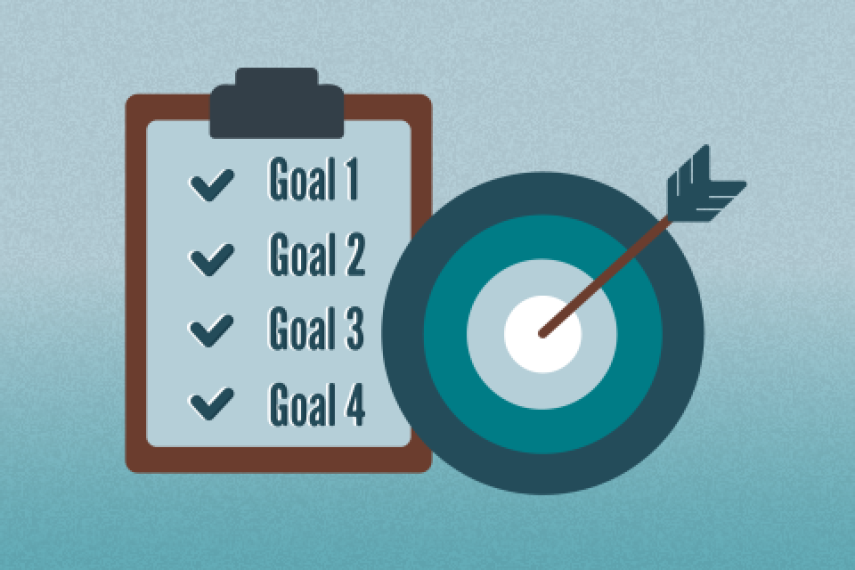
Saving money is one of the most powerful things you can do to take control of your financial future. Whether you're looking to build an emergency fund, save for a big purchase or secure your retirement, setting clear savings goals will help you stay focused and motivated. The key is knowing where to start, what to prioritize and how to create a strategy that works for you. Here we'll explore different savings goals to help you thrive at any stage of life.
Short-Term Savings Goals
Short-term savings goals are those you aim to achieve within the next 3 to 5 years. These goals are often more immediate such as purchasing a car, going on a vacation or building an emergency fund. With short-term goals, the focus is on saving consistently, while keeping risks low to preserve your money.
Great short-term goals might include:
- Building an emergency fund: Start with a goal of $1,000. Then work toward saving 3 to 6 months’ worth of your living expenses. This cushion will help you handle unexpected events with confidence.
- Saving for a memorable trip: Set aside money for a vacation that you’ve always wanted to take. Traveling not only provides amazing experiences but also offers a chance to recharge.
- Preparing for big purchases: Whether it’s a new laptop, a car or home appliances, planning ahead for these larger expenses can prevent you from taking on unnecessary debt.
- Home renovations: If you’ve been dreaming of updating your living space, setting aside funds for renovations is a great way to enhance your home’s value and enjoyment.
Short-term savings often work best with safer, low-risk options such as savings accounts, money market accounts or https://www.hzcu.org/personal-accounts/certificates/ (CDs).
Intermediate Savings Goals
Intermediate savings goals typically span 6 to 10 years, which allows for more flexibility and greater investment options. These goals are usually larger, such as buying a second home, starting a business or saving for a child’s education. Since you have more time, you can take on a bit more risk with your investments.
Intermediate savings goals include:
- Saving for a down payment on a home: If you're planning to buy a house in the next few years, having a solid down payment ready will help you secure a better mortgage rate and avoid paying for private mortgage insurance (PMI).
- Funding higher education: Whether it's for your own college tuition or your children's, setting up a college fund like a 529 plan can ensure that you have the money needed when it's time to pay for school.
- Investing in a car or other large purchases:Whether you're buying a new car or upgrading your current one, planning for these bigger investments will keep you from dipping into your emergency fund.
Intermediate goals are ideal for investing in lower-risk stocks, mutual funds, bonds or even real estate. The key is to find a balance between growth and stability. It's always best to consult a financial advisor before making big investment decisions.
Long-Term Savings Goals
Long-term savings goals are those that you expect to take 10 years or more to achieve. These goals are often focused on securing your future and ensuring long-term financial stability. The most common long-term goal is retirement, but it could also include starting a business or investing in property.
Popular long-term savings goals include:
- Retirement: The earlier you start saving for retirement, the more time your investments have to grow. Consider tax-advantaged retirement accounts like a 401(k) or IRA to help fund your golden years.
- Starting a business: If you've always dreamed of owning your own business, saving for the initial startup costs could be a life-changing goal.
- Investing in property: Purchasing investment property can help generate passive income and serve as a retirement fund.
Long-term goals allow for greater flexibility with investment options. You may be able to take on higher-risk strategies such as investing in stocks, real estate or growth-focused mutual funds, knowing that you have time to recover from any market downturns. Once again, consult with a financial advisor for the best outcome.
Get Started Today!
No matter where you are on your savings journey, the most important step is to start today. Pick 1 goal from each of the 3 categories — short, intermediate and long-term — and create a clear plan to start saving. Whether it’s setting up automatic transfers to a savings account or investing in a retirement fund, taking consistent action will help you make steady progress toward your dreams.
By setting well-defined goals and choosing the right strategies, you’re not just saving money — you’re investing in a secure future filled with opportunities. If you need a place to start, ask us about a Financial Trek check! We’ll help you create a personalized money plan with specific action items and provide educational resources. Then we’ll follow up to track your progress. Just visit your local Horizon branch or call us at 800.852.5316 to begin today.
